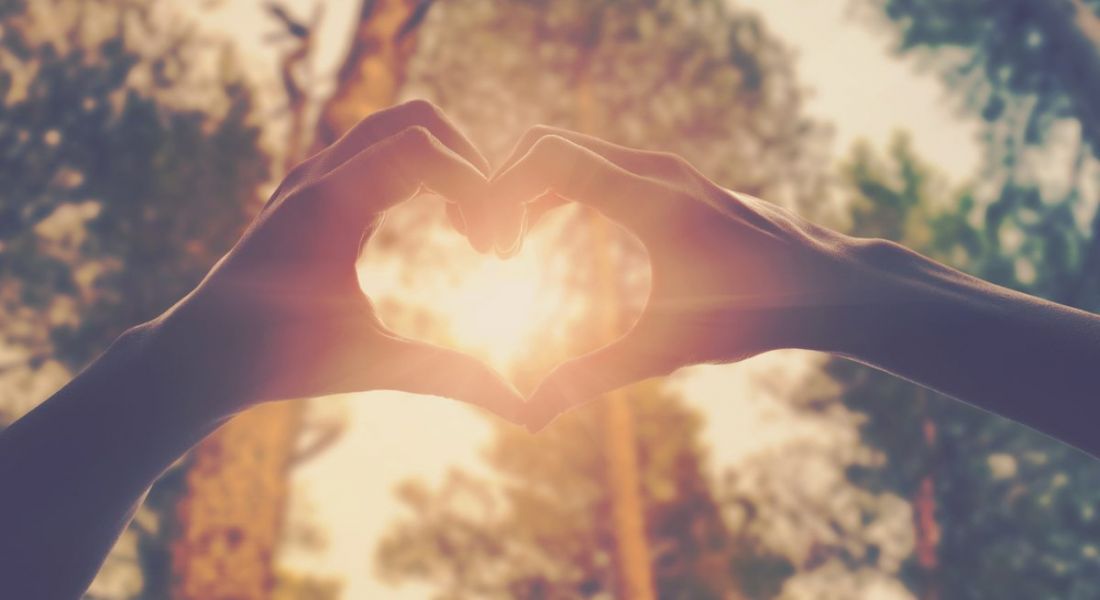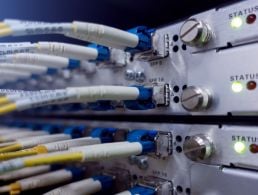We know soft skills are important, but how strong is your empathy? Monica Parker is here to talk about why it’s one of the most important assets we can have.
The Oscar nominations were announced at the end of January and, not surprisingly, Dunkirk is up for a whopping eight awards. I don’t generally like watching war movies. The ‘good’ ones are so moving, so deeply disturbing, that I find myself for weeks reflecting on the fear, trauma and pain of all involved.
So, it was with a bit of reluctance I decided to see Dunkirk at the end of last year. Given my globetrotting lifestyle, I view most movies on a small screen somewhere over the Pacific Ocean. But Dunkirk, I had been told, was a masterpiece that deserved a big screen, and so the husband and I went to the Imax to view it in all its 1570 glory.
Months later, I’m still processing the experience. The relentless, visceral violence interspersed with moments of bittersweet poignance. The feeling of taking a gasping breath and then dipping below water, holding it until your lungs ache and burn, and then rising again for another breath, to be met simultaneously with life-sparing air and life-taking chaos.
The entirety of 2017 seemed to take a similar toll on my psyche. Between Google Bro, #MeToo, Charlottesville, Barcelona, Vegas, London, Manchester, Nigeria, Myanmar, Syria, Harvey, Maria, and Irma – too many to mention – I have toggled between anger, hope, sadness, hopelessness and exhaustion in almost all equal measure.
‘It’s taxing mental gymnastics our brains are doing to be empathetic’
– MONICA PARKER
My coping mechanism when dealing with difficult news is to become something of a prospector, looking for the flakes of glimmering precious metal that I trust exists in a weighty pile of sadness. Reflecting on 2017, I think I have found the vein of gold within the unyielding bedrock: the double-edged sword of empathy.
Brené Brown does an excellent job of explaining the difference between empathy and sympathy, saying that empathy means crawling down into a hole with someone, rather than just shouting advice from the rim at the top.
The problem when you crawl in that hole with people is that it makes you feel vulnerable and it takes a lot of energy to do authentically. The other reason empathy is hard is because it is a great equaliser. If we try to feel genuine empathy for everyone, including Google Bro or Harvey Weinstein or even (gulp) Donald Trump, then we are forced to imagine how that person could become so bereft of their own empathy, and the reality drains us.
It’s taxing mental gymnastics our brains are doing to be empathetic. Neuroscientists have recently discovered that humans are wired to experience empathy through multiple systems of mirror neurons in our brains. These mirror neurons reflect actions that we observe in others, causing us to mimic that action in our own brains.
Emotions are contagious. When we observe someone in pain or when we are with someone happy, we experience that to a certain extent. These mirror neurons are the primary physiological basis of empathy and are the evolutionary tool to help us connect and create communities for safety and socialisation.
There are barriers we create, however, to the functioning of those mirror neurons. Neuroscientist David Eagleman did a study where he showed people pictures of a hand being stabbed by a needle and tracked their responses using brain scans. Naturally, when people saw the images, their pain centres lit up in empathy. When we see people hurting, we hurt, too.
But here is the tricky part. Next, he labelled the hands with words like ‘Christian’, ‘Muslim’ and ‘Atheist’ and showed the images again. This time, participants’ pain centres only lit up when they saw their own in-group being stabbed. Empathy depends on breaking down the us-and-them barriers. It can only exist when we see ourselves as one humanity with one shared human experience.
But humanity has empathy fatigue. Roman Krznaric, in his book Empathy: Why it Matters, and How to Get It, notes that empathy levels have dropped precipitously over the last 40 years. Statistics like these should have us worried. Without empathy, organisations stall. Empathy is a primary element in creating and maintaining trust in teams. (Trust is also at an all-time low, with the recent Edelman Trust Barometer showing the lowest levels of trust ever recorded for countries such as the US and UK).
Developing empathy is the first of five steps in traditional design thinking, and it is what underpins the driving ethos of human-centred design. Empathy supports engagement, retention, commerce, long customer relationships and even correlates to increased sales.
We know it’s important, we understand what it is, but how do we increase it? Empathy is a muscle. Use it or lose it. Here are some empathy builders for you and your team.
Presence
Our device culture is not doing our empathy any favours. Even having a mobile phone in view during meaningful conversations lowers our trust and empathy in the other party. This is why phone-free meetings can be so effective for better communication and team building.
We also know that phone use increases our anxiety and depression, and, if we are using them in an already highly empathetic state, it can be particularly destructive. I will honestly say that this is the toughest for me. I love my phone and social networks, but they do not love me back.
Try a screen time blocker. Free on Samsung, Arianna Huffington’s Thrive app not only blocks your access but also has an auto-reply saying you are in ‘Thrive Mode’, exerting some good positive peer pressure to your network.
Radical candour
This one may seem a bit counterintuitive. Candour is about possibly hurting people’s feelings, and empathy is the opposite, right? Not really. True empathy is authentic, honest and sometimes a bit awkward. Ruinous empathy, on the other hand, is disingenuous, obsequious and the easy way out.
Consider this example of a team member with spinach in their teeth. Ruinous empathy means not telling them and exposing them to heaps more embarrassment. A moment of radical candour, delivered quietly and kindly, is in fact the most authentically empathetic way to respond. It’s a more difficult way to manage and lead, but worth the result of a stronger, more trusting team.
Vitamins C and A: Curiosity and awe
I bang on a lot about the power of curiosity and awe and this is yet another tick in the ‘pro’ column for healthy doses of Vitamin ‘C’ and ‘A’.
Remember the hand-stabbing experiment? Research shows that one of the best ways to break down in-grouping barriers is to be curious about other people’s lives. Talk to strangers. (Your Uber or Lyft driver is a great place to start).
Travel – it’s a great grounding mechanism for our egos. Seeing that everywhere we go, from Minnesota to Minsk, couples swoon and babies cry, and old people begin to resemble their pets, is a wonderful way to remind us of our shared human experience. And if you find a dud? Someone who seems like a real jerk? Take a lesson from Sarah Silverman and treat them with empathetic compassion. They probably need it.
A highly tuned sense of curiosity also makes us more awe-aware, which is a good thing, as awe is the most meaningful emotion we can experience. Contrary to belief, though, it doesn’t have to manifest itself in just the big ‘Aha!’ moments.
Even through daily ways of experiencing awe, we can actually shift our neural pathways towards more pro-social behaviours, such as teamwork, cooperation and creativity.
Take time to look at the sunrise or sunset. Check out the Hubble telescope images. Even just watching this four-minute drone footage of national parks has been shown to create the same kinds of pro-social effects as those big ‘OMG’ moments.
Self-care
To say the words ‘self-care’ sounds a bit weak and mealy, especially in the corporate world. But research in this area is quite clear. From Alzheimer’s caregivers to oncologists and palliative care specialists, the need to focus on our own wellbeing when empathetically taxed is key to our survival.
I love this article with some suggestions, entitled 5 self-care strategies that aren’t fucking mani-pedis, which includes avoiding unsolicited advice and making time for play. Self-care is serious business and, as great as a massage is, business leaders need to elevate the topic to the important intervention it is.
We’ve now reached the end of the beginning of 2018. My wish for myself, and for all of us this year, is that we meet the difficulties of our world head-on by being soldiers of kindness, warriors of curiosity, fierce protectors of the empathetic light we wish to see in the world, never forgetting to keep a lick of that flame for ourselves to keep our own home fires burning.
Monica Parker is the founder of Hatch Analytics, which helps companies to identify the good and bad parts of their cultures, and improve the workplace for their staff. Parker is a thought leader in workplace culture, and a previous Inspirefest speaker.




